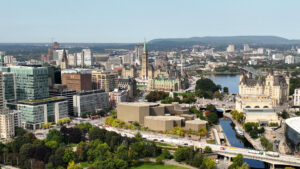What you need to know about moving to the countryside
It’s no secret that the pandemic caused many people to reassess their priorities. With more flexibility to work from home and less reason to deal with the crowds, traffic and stress of the urban environment, many are being lured by a lifestyle beyond the city limits. And it’s not hard to see why.
The appeal of country living — with its wide-open spaces, peace and quiet, and instant access to nature — has certainly inspired many to make the move. The sudden transition to remote-work and more small towns and rural areas offering access to high-speed networks means many professionals today no longer need to live in or near a large city for better career opportunities. Many have chosen to eliminate the hustle and bustle of daily commuting and the busyness of city living to enjoy a more relaxed way of life.
Of course, making the move from the city to the country isn’t something you should do without thinking through the pros and cons. For all the upside of more affordable and bigger housing, fewer people, less traffic and access to nature right outside your front door, there are some key differences you need to know about moving from the city to the country.
Rural Services and Utilities
When it comes to utilities and services, there are some notable differences between city and rural areas. In general, cities have a wider variety and better access than rural areas. Cities tend to have a greater selection of schools, health care, and public transportation options. Municipal water and sewer systems, natural gas network, and curbside waste pickup that we take for granted in the city simply are not available for most rural residents.
Here are some of the key differences.
Cell and Internet Service
Canadians have come to depend on high-speed internet as an essential service, as we saw by the sudden need to shift to remote work and virtual learning during the pandemic. But there’s still a digital divide between Canada’s urban and remote rural areas. While coverage is improving, less than half of Canadians in rural regions have internet access. The federal government has promised to connect all Canadians to high-speed internet by 2030. Because of the logistical headache of installing fixed-wireless lines in a country as vast and sparsely populated as Canada, satellite internet access is becoming the most common type of network in most rural and remote regions.
Rural areas close to cities (within 1-2 hrs drive) generally have very good internet access, but be aware that access in more remote rural areas is generally slower and more expensive the further you get from major cities. Investments and improvements are being made, but there’s still no assurance yet that satellite is reliable enough to be a suitable option.
Also, the CRTC reports that 99.7 per cent of Canadians have mobile wireless access. However, nearly 110,000 Canadians are still without coverage, practically all being residents of rural areas.
Heat and Hydro
Most rural areas don’t have access to natural gas, so oil, propane, electricity and wood (or wood pellets) are your most common options. If you use oil or propane, you’ll have a storage tank on your property that will need to be filled periodically. You’ll need to contact a local fuel delivery service to arrange delivery to your home. Depending on your heating system and the characteristics of your home, your heating costs could be significantly higher than you’re used to.
If you heat with a wood stove, you need to buy firewood — many suppliers will deliver it to you — or be prepared to harvest your own. But even if you choose to have wood delivered, your order will likely be dumped in your yard or driveway, and you’ll have to move and stack it yourself. Many rural homes will combine a fuel or electrical heating source, and supplement it with a woodstove, ensuring they have a backup source in the event of a power outage.
By the way, rural communities generally experience more frequent and prolonged power outages than urban centres. Storms or icy weather can mean especially lengthy outages for rural communities. Many in Eastern Ontario remember the 1998 ice storm that resulted in a widespread power outage that lasted for several weeks in some communities. More recent floods and storms also prove that we just can’t predict if and when natural events will cause prolonged power outages. A backup generator is a highly recommended investment.
Water and Sewage
In cities and towns you have access to municipal water, sewers and plumbing. In the countryside, however, you’ll likely have a well and a septic system. Both will require occasional attention and maintenance. Unlike a municipal water supply, your well water will likely rely on an electricity-powered pump to deliver water into your home, so a power loss will also mean no running water.
Well water is also prone to contamination from bacteria, viruses, parasites and chemicals, and will need to be tested periodically. As the owner of your well, you’re responsibile for protecting the quality of your well water. Typically, the groundwater that supplies most wells is naturally clean and safe to drink, but some wells require water treatment or filtration systems.
Your septic system is an underground waste water treatment service located on your property. It consists of a septic tank and a drainfield/leaching bed and uses natural waste treatment processes to breakdown and disperse biodegradable waste. So, you have to be careful about what you flush down your drains so you don’t disrupt or damage your underground waste-management ecosystem.
You’re also ultimately responsible for the maintenance of your septic system. Your septic tank should be inspected every year or so, and may need to be pumped out on occasion (typically once every 2-5 years). Your septic system is designed to handle a reasonable volume of household waste water — sending too much, too quickly, through the system means the waste may not get separated and broken down properly.
Be aware of where your septic system is located and what you can and cannot do to the site of your leaching bed. Many homeowners have damaged their systems by building driveways, pools, ice rinks and landscaping (to name a few) over or through their leaching beds, or overwhelmed their systems by draining their downspouts or sump-pumps into their septic systems.
Garbage and Recycling
Curbside waste and recycling pickup simply isn’t an option in most rural communities. Rural residents need to dispose of their organic waste with a backyard composter which you can then use to create nutrient-rich soil amendments for your garden, flower beds or lawn.
You’ll probably have to take your other solid waste and recycling to a local landfill or arrange for a private garbage collection company to provide a pickup service.
Tools and Equipment
You’re going to need a lot more equipment after moving to the countryside!
You may have only needed an average snow shovel to clean your driveway and sidewalk in the city. If your new country home is set way back off the road, that long laneway is going to need a lot more than a simple shovel to keep it clear in the winter. You’re likely looking at a snowblower, a tractor, or some type of snowplough to keep your laneway clear, or you’ll have to pay for a snow removal service. Snow removal service for a long country lane will cost considerably more than your short driveway in the suburbs.
Also, you might be used to having snow cleared off your city street and sidewalk within hours of a storm. In the country, you could go many days before the snow is cleared from your road.
Other types of tools and equipment you might need for your country property can include:
- A large lawnmower or lawn tractor
- Lawn and garden tools like rakes, hoes, shovels, wheel barrow,
- A chainsaw and safety equipment,
- Common hand tools like hammers, screwdrivers, saws, measuring tapes, pliers, wrenches, utility knives, etc.
- A utility vehicle (ATV)
- Various blades, loaders and other attachments for your tractor/lawn tractor
Plan Your Move
As with any big move, we recommend you plan and prepare well in advance, especially if you’re making a long-distance move. Create a clear schedule to help you stay on top of things and line up a reliable moving company. Get an in-home estimate and go over all the details of your new country home with your movers.
Be sure to notify Canada Post and your utility companies. You may have to discontinue or change accounts — and as seen above — you’ll need to figure out how all the utilities and services work at your new rural address.
Culture Shock
Moving from the city to the country can be a culture shock, even for those who have been living in the suburbs. There are obvious differences, such as the pace of life and the amount of open space. But there are also less obvious differences, such as the way that people interact with their neighbours and the types of food that are available.
Forget being able to order in an endless selection of food delivery options or a quick trip to a local 24-hour convenience store. There’s no public transit. Ride-sharing apps might be the future of rural transit, but for now they won’t help you. If you’re used to living in a walkable city neighbourhood, you won’t have that either.
For many people, the biggest adjustment is getting used to the quiet. In the city, there is always noise – like traffic, sirens and construction. In the country, it’s not unusual for there to be complete silence at night. Believe it or not, this can take some getting used to! But it’s also one of the things that people love about living in the country. With a little time and effort, anyone can adjust to life in the country and come to appreciate its many charms.
When moving from the city to the country, give it time. Just like any other major change in your life, it will take some time to get used to your new surroundings. You may find yourself feeling homesick or out of place at first, but that’s perfectly normal. Don’t be too hard on yourself — give yourself some time to adjust, and things will start to feel more familiar soon.
In the meantime, try to immerse yourself in the local community as much as possible. Attend local events, get to know your neighbours, and learn about the history of your new town or village. The more you involve yourself in your new community, the faster you’ll feel like a part of it. So go exploring, and enjoy getting to know your new home.
We Keep Ottawa Moving
Moving to the country can certainly have its challenges, but by being prepared and staying flexible, you can make the process run smoothly, safer and with less stress.
We’ve been in the moving business for over 70 years and have made many moves to rural areas across the country. If you have a move coming up and need help packing or moving, contact us today for a hassle-free moving quote.
















